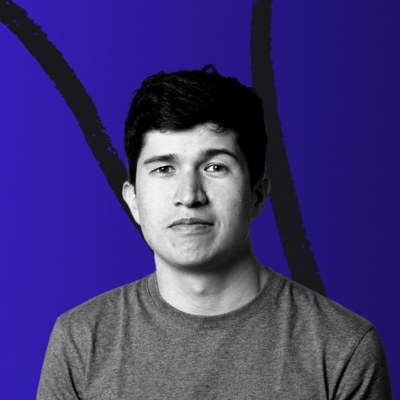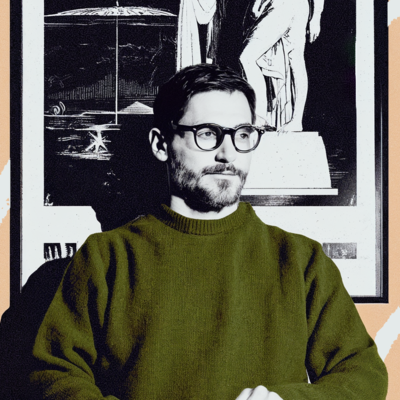
Sometimes I feel like I’m spinning my wheels intellectually. The basic truth is that I read a lot of non-fiction books, and a lot of them disagree. Pretty significantly.
For example, a month ago I read a book called Widen the Window by a former Army intelligence officer and current Georgetown professor Liz Stanley. The idea of the book is that when we get stressed out, our survival brain takes over and makes it hard to use our thinking brain. So we need to learn techniques to calm down our survival brain—and widen our window—so that we can react better to stressful circumstances by using our thinking brain. That’s cool! Makes sense.
Except, now I’m in the middle of a book called How Emotions Are Made by neuroscientist by Lisa Feldmann Barrett that completely disagrees. She writes that humans don’t have a survival brain and a thinking brain—we just have one brain and its job is to regulate our bodies. Therefore the key to emotion management is not to learn to calm our survival brain, it is to manage our bodies.
To which I basically respond, “Excuse me, I’d like to talk to the manager.”
How do I resolve these contradictory claims? Mostly I don't. Basically what I do is believe the new stuff, and forget the old stuff. Who needs it anyway? Every day is new! Ignorance is bliss.
It’s like being the Brain in Pinky and the Brain. Every episode you try to take over the world. But none of the plots carry over from one episode to another—every episode is a self-contained blank slate.
This is a very annoying way to live. I want ideas to carry over from one day to the next, and when they contradict each other, I want to get to the bottom of it and figure out the truth. I want to feel like my beliefs about the world are well-grounded, and unknotted—I want my beliefs to be more like a chef’s mis en place than a hairball at the bottom of a drain.
More specifically, I want to feel like I have well-grounded reasons for believing what I believe. Instead I just feel gullible. Here I am nodding my head at any author that can fog a mirror, like a philosophy undergrad. One week you read Kant, and you believe the intent behind our actions is the best way to determine their moral status. The next week, you read Mill, and you throw out that sappy moral imperative bullshit, because the only way to assess moral status is through the consequences of our actions. “UTILS, baby!” You shout as you fill out your spreadsheet assigning moral point values to every friendly conversation and Taco Bell run.
This is bad, I think. Or is it? Is it even true? Or did I just make you nod your head? Let’s see if we can untie the knot..
The upside of trying ideas on
One way to unknot ideas it to take them out for a spin.
That's what reading lets you do. It’s like living with an idea for a few days. You’re not married to it, but you’re going on a weekend trip. You get to see how it looks by candlelight, if it packs too much stuff in its suitcase, and how it reacts if the car breaks down or you miss your flight.
It’s a commitment, yes. But it’s not a commitment. You might decide that it’s unreliable, and break up. Or you might decide you like it, and keep it.
What’s more, you don’t have to introduce it to your friends right away if you don’t think they’d like each other. You can kind of keep both sides of your life going at once while you figure out if you really have to choose a side—or whether there might be a way to integrate the two.
This process, I think, is fairly important. There’s tremendous upside in variability and diversity of ideas. Typically when we’re reading non-fiction books it’s because we think we’re going to get something out of them: we’ll find new ways to live, or understand the world, or make decisions. There’s generally some kind of practical upshot of the book that you can take away into your life.
Most non-fiction books recommend ideas that are low cost to try, and have potentially high upside. So why not just go ahead and try them?
I’ve felt something similar doing Superorganizers interviews. The reason I love doing them is that everybody has a different system for running their life, and the systems are fairly modular. I get to pick and choose little bits to try to incorporate into my life. Everything from the way I track my todos, to the way I organize my calendar are from the interviews I’ve done—and I don’t have to completely agree with the philosophy behind the tip in order for it to fit into my life.
I give it a shot—if it works I keep it, and if it doesn’t I throw it out. I don’t need to take tons of notes to resolve contradictions, because it happens semi-automatically in practice. I take what works, and forget the rest.
But what about truly understanding what you think?
Okay, yes, you can try ideas on. But does that fully resolve the issue? A big piece of the issue is not practical, it’s intellectual. I want to truly understand what’s going on in the world. And it’s very annoying to feel like I’m just believing the last thing I read.
Well, let’s ask another question: are these books actually contradictory? Let me explain.
There are huge upsides for writers to disagree with each other. If a writer agrees with what’s already been said, they have nothing to add to the conversation and therefore there’s no reason for anyone to pay attention to them. If they invent their own terminology they can create network effects that keep their fans engaged with their content. This creates a huge burden on readers—you have to sift through different terminology, trying to find which pieces are compatible and which ones are not.
In a lot of ways the non-fiction universe in places like business and science is like that cliche parable about the blind men and the elephant. Each man has his hand on a different piece of the elephant, and each reports that an elephant is a different kind of thing. But they all have their hands on the same elephant—they’re just not doing any work to resolve their differing pictures.
What I’m saying is that in a lot of cases the contradictions are only apparent.
You have one blind man that says that elephants are long and cylindrical and another blind man that says they’re round and flat. Contradiction? Well, no. It turns out that one of them was touching the trunk, and the other was touching the flank of the elephant. If we just do a little more work to put the ideas we’re chewing on into their proper context, we might find that most of the contradictions disappear.
But what if they don't? How do we grapple with ideas and figure out what we really think?
Take notes
I think this is one of the reasons we’re driven to take notes. Of course, I would think this. This is Superorganizers after all.
When you take notes you can compare and contrast the different ideas in all of the books you read and, presumably, come to some sort of unification. I have lots of book notes, and the simple act of writing out the arguments can help unknot the problems some.
It’s especially nice to do in Roam because you can cross reference between books and make the authors argue with each other.
I do a little bit of this. But it's time consuming and hard to keep with. So I have another process that helps to keep me in check.
Talk to friends
One thing that we’ve been doing at Every for the last month or so is a portion of our daily check-in called “What’s Interesting?”. It is what it sounds like: someone asks the question, “What’s interesting?” and then we go around and discuss ideas that are on our minds. This helps us make sure we’re paying attention to whatever’s capturing our imagination as the moment—which is really important because that’s generally what’s going to capture the imagination of our audience.
In these meetings I’m mostly bringing up little ideas from books I’ve read, trying to summarize them, and trying to fit them into a broader picture of how the world works. It turns out this is a really good way to unpack contradictions.
In the first place, this forces me to summarize whatever I’m learning from a book for people who are smarter than me. It’s really apparent when I’m launching into a summary whether or not I truly understand what I’m talking about—which means I’m motivated to take some time beforehand to actually parse through the idea.
But also important is the people in the meeting ask me questions and hold me accountable if I’m saying something that’s contradictory.
Having friends to talk about ideas with is a nice way to build up a less buggy knowledge-base over time. Of course if you truly want to debug your ideas the best way to do it isn’t to talk about it, it’s to write about it.
Writing in public
This has been written about so much already that I’ll just mention it briefly here. We all know how writing works:
It has a way of boiling the fat from your brain. Your ideas cease to be slippery and amorphous, and instead become corporeal puzzle pieces that need to be fitted together just so. You can’t hide when you write—and so making a habit of writing in public is probably the best way to understand what you’re reading and to truly figure out where the contradictions are.
Of course, it’s extremely time consuming—but maybe that is the point.
Is it really supposed to be easy?
The true, honest, answer is that I don’t think understanding what you truly think is ever going to be easy. It’s hard to distill the world into a compelling picture. It’s why people read writers—in many ways this is our job: to do the heavy lifting of finding and untangling contradictions so that our readers don’t have to do as much work.
But if you care about what you think, there is a well-defined process for unknotting your ideas: take them out for a spin, take notes, talk to your smart friends, and write in public. It takes time, but it works.
The interesting thing is that the more you do this process the more ideas you’re going to get exposed to. It’s an intellectual flywheel. So although you're going to resolve the knots that come up—you’re going to end up running into more and more of them.
Which brings us to my last point. So what if the edges of our brains are messy? Do we really need everything to be wrapped up in a box with a bow? Do we really need our minds to be perfect?
The key is intellectual curiosity, and an earnest desire to figure things out. It's hard to ask for more than that.
Show me someone whose ideas don’t contradict, and I’ll show you someone who doesn’t have many ideas.
The Only Subscription
You Need to
Stay at the
Edge of AI
The essential toolkit for those shaping the future
"This might be the best value you
can get from an AI subscription."
- Jay S.
Join 100,000+ leaders, builders, and innovators

Email address
Already have an account? Sign in
What is included in a subscription?
Daily insights from AI pioneers + early access to powerful AI tools










Comments
Don't have an account? Sign up!
I like Daniel Kahneman's model of two systems in the human brain - system 1 (fast) and system 2 (slow)
"Thinking Fast and Slow" is one book that has really stuck with me over time.
This resonates with me! When I emigrated to the US, I found many things I learned contradicted with eastern philosophy. I was frustrated for a long while. Then, I realized the truth is always in the middle. There is no map for life. I love learning new systems and only take what works for me. Thank you for this beautiful article, Dan!